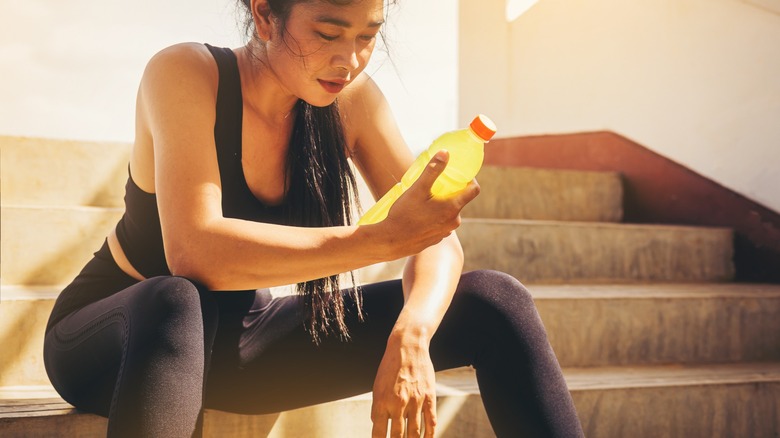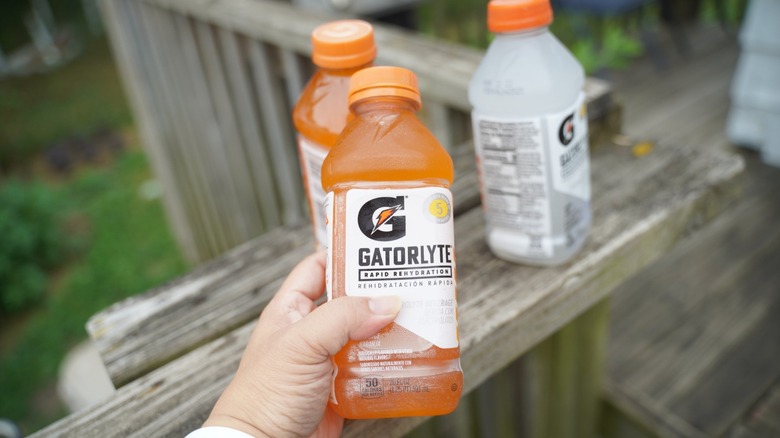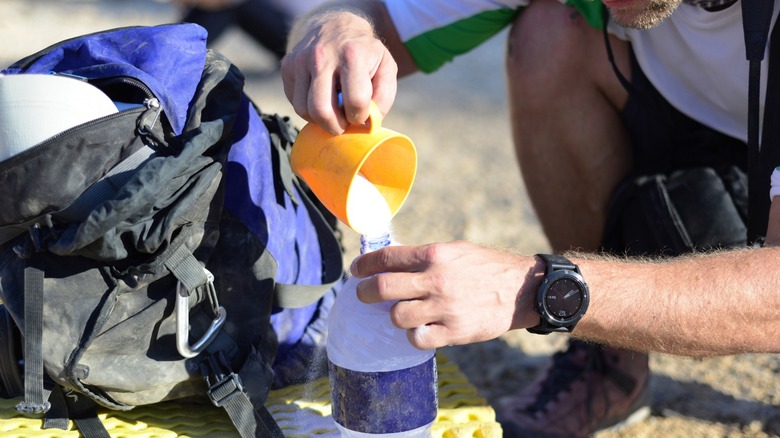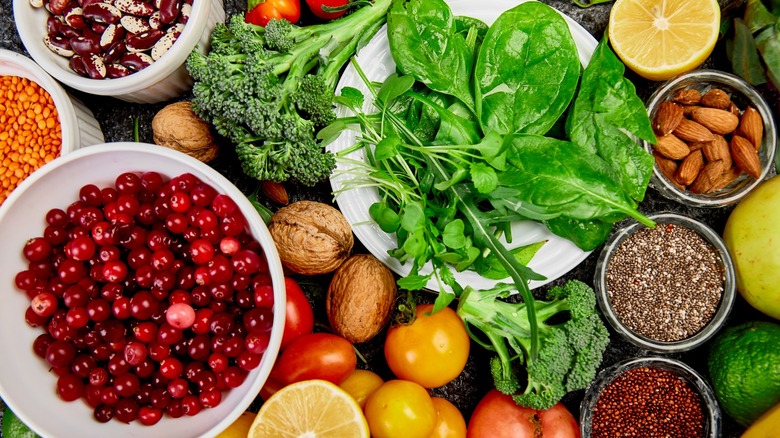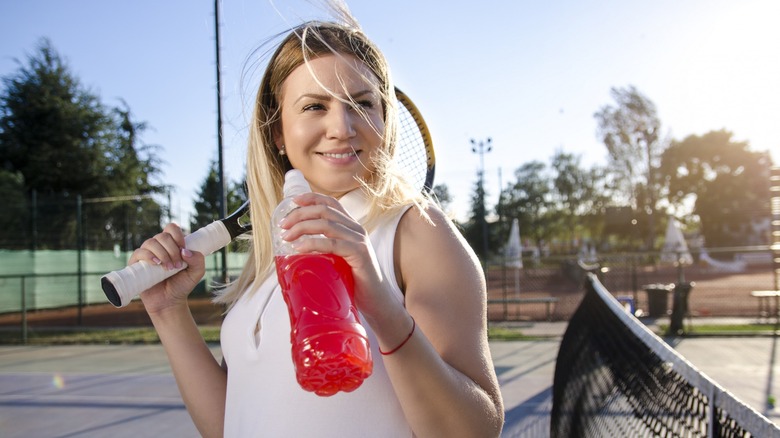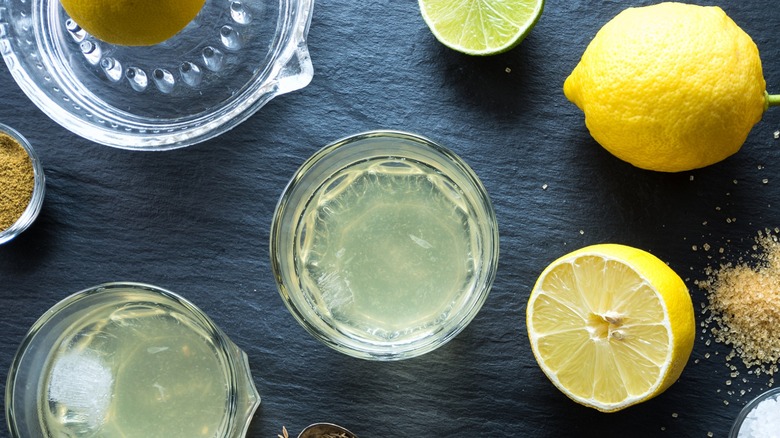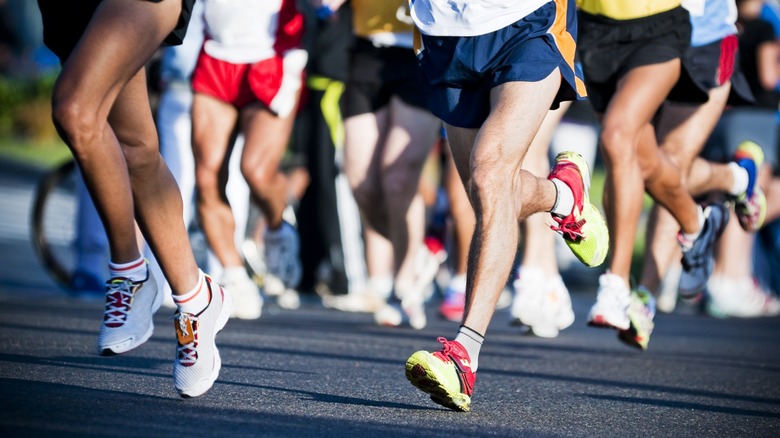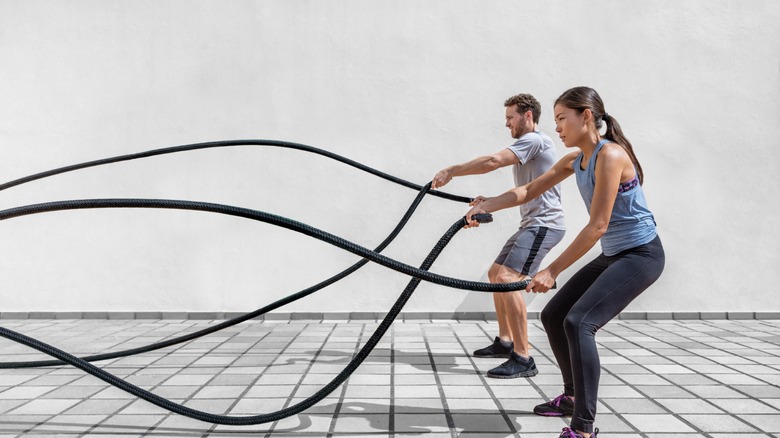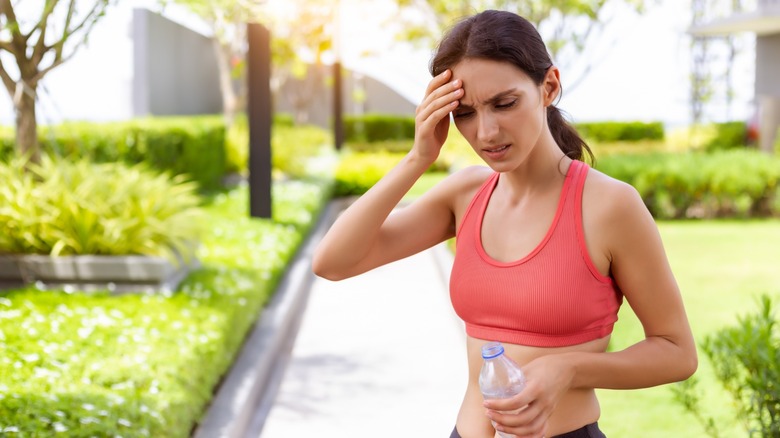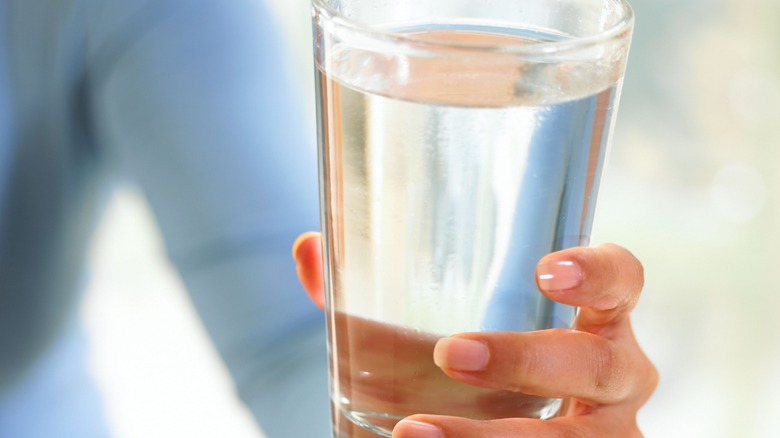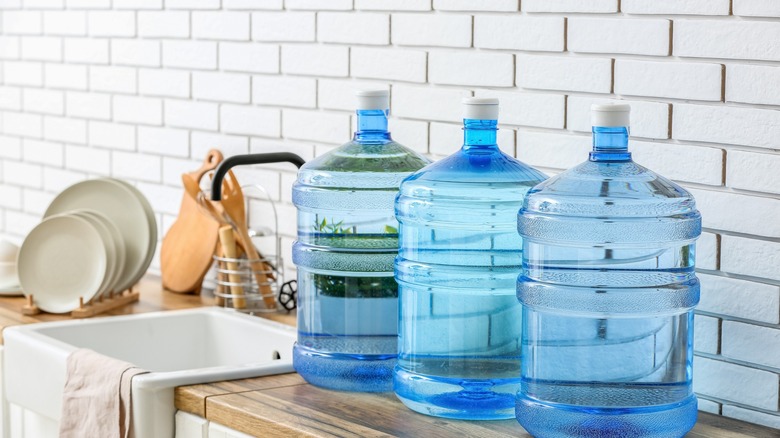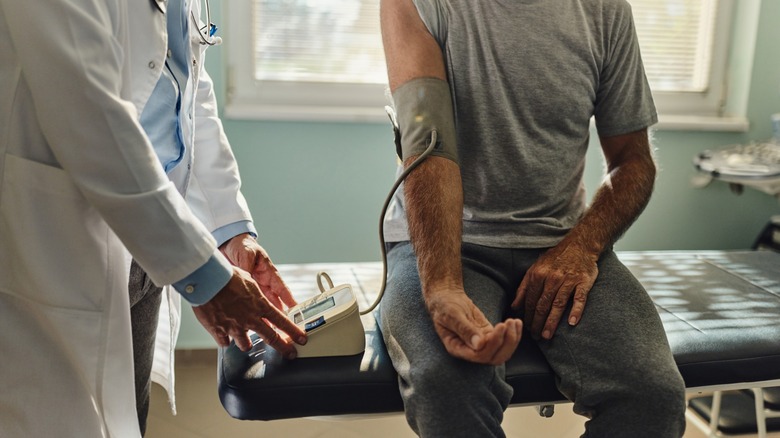False Facts About Electrolytes You Thought Were True
Everybody knows that sports drinks replenish the electrolytes your body needs. Or do they? The answer is complicated because most people believe inaccurate rumors about electrolytes, including what they are and how they work. This confusion is partly caused by misleading advertising from sports drink manufacturers but also because people don't understand how electrolytes impact your health.
Electrolytes are necessary for your body, that is true, but you may believe some inaccurate rumors about them. For example, you might think only elite athletes and marathon runners need to replenish their electrolytes. There are also a lot of myths about how to have the proper balance of electrolytes, the health conditions they cause, and what you can do about them. When it comes to health, you can be misled, but once you understand the science, it's easy to separate fact from fiction.
We'll debunk the myths you have heard about electrolytes, including what it means when a drink contains them, and give you the skinny to ensure you're getting the right amount of electrolytes to support your health — whether or not you're athletic!
Electrolyte deficiency can only be solved by drinking sports or electrolyte drinks
While some drinks can help, several factors go into balancing the electrolytes in your body. But first, we need to understand what electrolytes are and what they do for the body.
Electrolytes are minerals found in your cells. These form in the fluids in your body, including water, blood, and urine. Electrolytes become ionized in liquid, which means they have a positive or negative charge. The seven minerals that become electrolytes in your body's fluids are sodium, potassium, chloride, calcium, magnesium, phosphate, and bicarbonate. Each one helps your body manage critical internal functions.
Your body requires a healthy balance of electrolytes to support many functions. They help maintain your nervous system, hydrate your cells, and balance your body's pH. They are also required for your muscles to work, like when you flex them during workouts. This is probably one of the top reasons people associate electrolytes with physical fitness.
Sports drinks with electrolytes are the healthiest way to balance electrolytes
You might believe that only sports drinks can replenish electrolytes. But these minerals are found in water, too. In fact, most bottled or tap water contains electrolytes.
While they often contain a healthy dose of electrolytes, sports drinks also have concerning ingredients. For example, these drinks sometimes contain caffeine, but be careful! A caffeine boost following a late-day workout can keep you up at night.
These drinks also generally contain high doses of simple sugars, including glucose, high-fructose corn syrup, and/or sucrose. Like caffeine, these are also intended to boost your energy to endure a strenuous activity. The sugar also helps your body absorb the electrolytes.
As for the science, some studies endorse sports drinks to support high-intensity physical activity. Unfortunately, there is also conflicting research, some refuting that claim. Other studies are inconclusive.
However, scientists do agree that sports drinks are unnecessary for children. They can do more harm because they contribute to obesity in children and adolescents. With high dye and sugar content, you probably want to keep your kids away from these drinks unless a doctor advises you.
Finally, it can be dangerous to mix alcohol and energy drinks, so if your sports drink contains stimulants in addition to simple sugars, avoid mixing the two.
Liquids are the only way to replenish electrolytes
Yes, electrolytes are produced in liquids, but foods high in minerals can help you maintain the proper balance. Your body already contains the fluids necessary to convert them.
What foods are best to maintain a healthy electrolyte balance? Most vegetables, such as leafy greens, are an ideal source of most minerals. Fruit is rich in potassium. Dairy products, like cheese and cow milk, are, of course, high in calcium but also contain their fair share of magnesium, sodium, and phosphorus.
If you can tolerate them, we also recommend nuts, seeds, beans, and lentils for magnesium and phosphorus. Salt and salty foods, like olives and zero-calorie pickles, are great for sodium, too.
Fortified foods like cereal also contain minerals, but we prefer real food options. These products are often processed and can actually have too much of a nutrient, contributing to electrolyte imbalance. Whole foods are always the best choice.
Everyone needs extra electrolytes, especially when they work out
While it is true that we need electrolytes, not everyone experiences a deficiency. Most people get enough minerals in their diet and from drinking water. However, if you do not eat enough minerals, drink enough water, or have adequate nutrition in your diet, you could be at risk for electrolyte imbalance.
This is especially true for people who need workout recovery. Athletes, people who engage in heavy physical activities, like marathons and runs, and those who do high-intensity training several times a week could risk an electrolyte imbalance beyond what proper diet and hydration can replace.
When you sweat, your body releases electrolytes, especially sodium. That's why your sweat is so salty, yuck! Sweating for extended periods can lead to dehydration. This puts a strain on your heart, especially during athletic activities. It makes your workout more challenging but can also put you at risk of cardiovascular issues. If you regularly engage in strenuous or high-level athletic activities, be sure to replenish those electrolytes.
You can't make your own electrolyte water
The marketers at sports beverage companies have misled people into thinking that electrolyte-infused beverages are hard to make. But when you're watching your sugar, especially for health reasons, 34 grams of sugar in a single sports drink is not a good choice. It's simple and affordable to make your own electrolyte drink at home. And bonus? You can make it sugar-free!
All you need to make electrolyte water is one cup of plain water, two tablespoons of lemon juice, and a tiny sprinkling of table salt. Do not use carbonated water for this. You can add sugar-free flavorings, such as stevia, or drink mixes like Crystal Light.
We recommend that people following a low-carb diet to drop their insulin levels try this recipe. These diets can reduce the minerals in your body as you expel them, which is a safe, sugar-free way to replenish them.
Electrolyte replacement only matters for athletes and people who work out
Even though the sports industry has cornered the market on electrolyte drinks, electrolyte imbalance doesn't just happen during strenuous activity. There are other times we may need to prevent dehydration, like during a cold, virus, or other everyday illnesses. This is especially true when an illness causes diarrhea, vomiting, a lack of appetite, or an inability to consume liquids as much as you typically do.
When you're sick, look for signs of dehydration, including excess thirst, urinating less than usual, dark-colored urine, dry skin, fatigue, lightheadedness, and an inability to sweat. If you are struggling with diarrhea, replenish your electrolytes with electrolyte water or mildly flavored sports drinks. Your doctor might also recommend a sports drink, but avoid ones with caffeine. For example, Gatorade's new products are designed for athletes and contain high amounts that may keep you awake when you need to rest.
If you are throwing up, it's essential to keep hydrated even while struggling to keep liquids down. You can chew on ice cubes or chips. Another good idea is to try small spoonfuls of liquid broth. Be sure to avoid low-sodium brands so you can replenish your salt.
If your child is dehydrated due to being sick, drug stores carry oral rehydration solutions, such as Ceralyte, Infalyte, or Pedialyte. Naturally, you should call your pediatrician or doctor to address the illness.
You need a sports drink for heavy workouts or you will dehydrate
While sports or electrolyte drinks can be helpful, they're not absolutely necessary for every workout. The best rule of thumb is if you're working out for two hours or doing high-intensity activity for more than an hour, you'll probably benefit from a sports drink. However, if it's a low-impact activity, like a walk or yoga, it's probably not necessary.
Of course, there are exceptions, for example, if you sweat excessively as a condition of your environment. If you take that 30-minute walk in 90-degree weather, you're more at risk of an electrolyte imbalance than on a cool day.
Medical conditions are another exception. Some people who sweat too much suffer from hyperhidrosis, which can be a symptom of a more serious condition. This disorder can be caused by diabetes, menopause, thyroid problems, certain cancers, nervous system disorders, or infections. If you sweat without a recognizable cause, you should see your doctor.
For people new to regular or strenuous exercise or taking on an endurance challenge such as a marathon, you may need more support. We recommend eating a diet rich in minerals and keeping sports or electrolyte drinks on hand to combat dehydration.
Electrolyte imbalances are no big deal
If an electrolyte imbalance is not addressed, it can lead to disease and other conditions. Each of the seven necessary minerals that your body needs can be too high or too low, causing this imbalance.
We'll need to get a little more technical to explain this process. Your body's cells require just the right amount of water. Different bodily organs move the charged minerals — that is, electrolytes — around to ensure that everything is in balance. Even so, you may have too much or too little of a mineral on hand for your body to compensate. When that happens, your electrolytes fall out of balance, and you may have issues at a cellular level. That is a big deal.
People at risk for an electrolyte imbalance include vulnerable populations, like infants, young children, and older adults. However, there are many other health causes for electrolyte imbalances, including burns, cancer, cardiovascular diseases, dehydration caused by illnesses, eating disorders, kidney disease, liver diseases, and substance use disorders.
Certain medications also put a person at risk, such as antibiotics, chemo, corticosteroids, diuretics, and laxatives. Your doctor may recommend sports drinks for some of these challenges.
Drinking too much water can wash away electrolytes
While drinking water too quickly can cause an electrolyte imbalance, this act does not wash them away.
When you drink too much water too quickly, your kidneys can become overwhelmed and can't process the excess liquid fast enough. At this point, your cells overflow with water. This is known as hyponatremia or water intoxication, and it can cause inflammation in your brain. If your brain cells swell beyond the skull's capacity, you are at risk for medical issues such as seizure, respiratory arrest, coma, brain stem herniation, or death. Yikes!
Why would this rare event happen? While this is primarily about drinking water too quickly, there may be other factors contributing. Maybe you're doing some activity that is overly strenuous or overexposed to heat while exerting yourself. Or your diet is not supplying the minerals you need. Other ways you can be at risk for hyponatremia include taking diuretics, certain medications or recreational drugs, medical conditions, or experiencing diarrhea or vomiting.
Symptoms of this condition include mental disorientation, headache, vomiting, nausea, fatigue, and frequent urination.
If you drink only purified or distilled water, you can die from a lack of electrolytes
Because water purification processes, like distillation or reverse osmosis, remove minerals from water, some people think you can die from drinking it. Since there are many other sources of minerals in our diet, this is not usually the case.
This myth probably arose because of hyponatremia fatalities. The most recent case occurred in July 2023, when a 36-year-old woman died from drinking water. On July 4th, Ashley Summers drank four bottles of water in 20 minutes during a boat ride and passed away from water intoxication two days later. The article is unclear exactly what led to her excessive thirst because she was not doing a strenuous activity. Some experts speculate that this condition may be psychologically induced, like when you feel you can't get enough water even though you are technically not dehydrated.
While we don't know all the details in this case, we do know that hyponatremia occurs because the kidneys can't process more than one liter of water per hour. You should be fine if you keep your water consumption to less than that.
Distilled water is cleaner than most tap or bottled water sources today, so it's safe to drink as long as you get minerals in your diet and properly replenish electrolytes during strenuous activities like running events.
Electrolytes raise your blood pressure
To be clear, not every electrolyte impacts your blood pressure. This only applies to sodium and potassium. Research shows that high amounts of sodium in your diet can raise your blood pressure, leading to hypertension.
Potassium also affects blood pressure, but that relationship is not as well studied as with sodium. However, potassium deficiency can also lead to hypertension because it helps your body rid itself of excess sodium. If there's not enough potassium in your body, sodium levels increase, potentially leading to high blood pressure.
It's wise to have a healthy balance of sodium and potassium and all the other minerals in your diet. Refer to the list of foods above to ensure your diet is well-balanced. Drink the appropriate amount of water for your body and replenish your electrolytes during overexertion, illness, or high heat. If you struggle with blood pressure, talk to your doctor before adding sports drinks to your diet.
